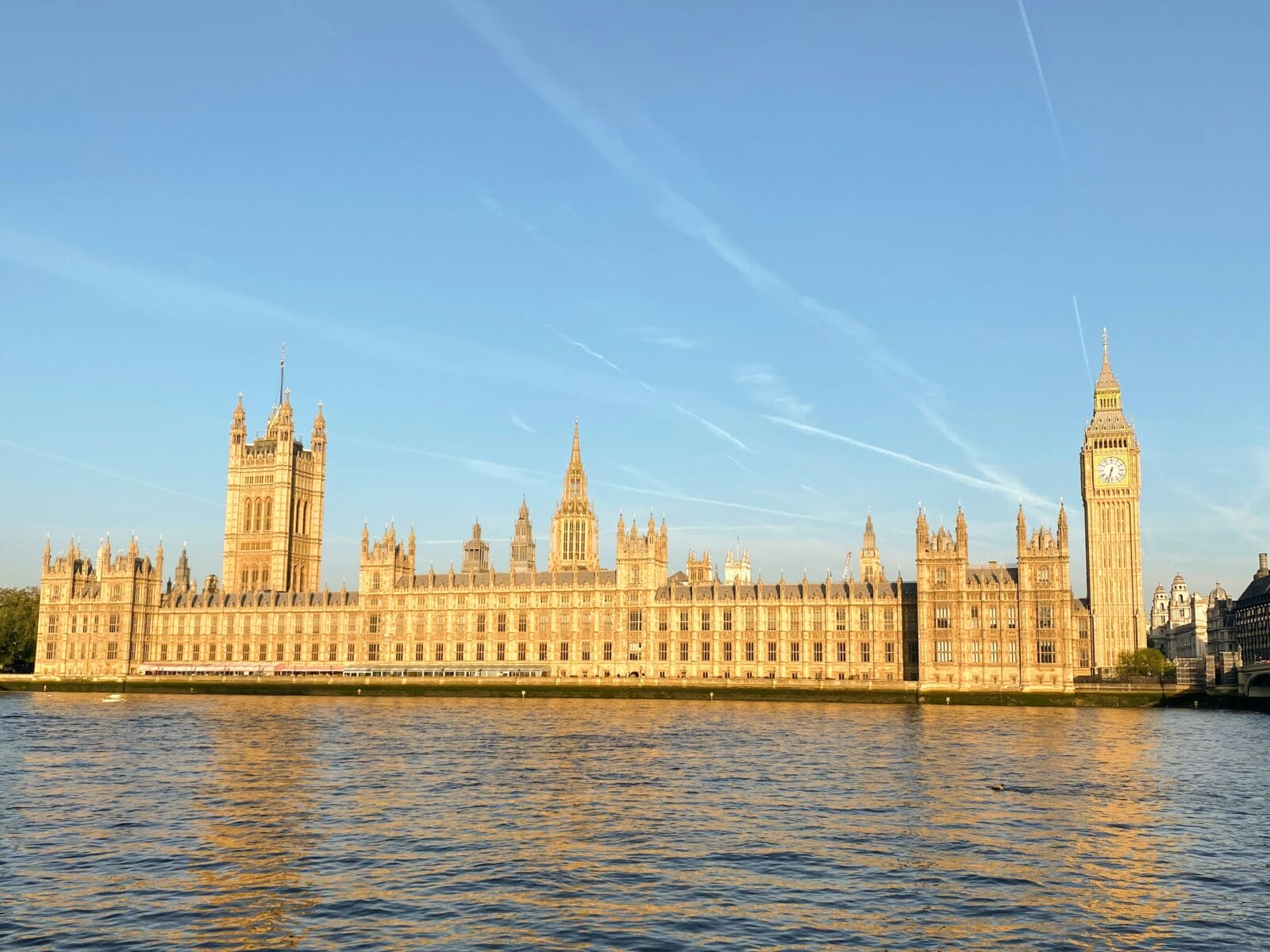Chancellor Rachel Reeves has now delivered her much-anticipated Spending Review, setting out the government’s funding priorities for the next three years— focused on ‘renewal’ and signalling key policy directions that advisers will want to watch closely.
While major allocations for the NHS and defence grabbed headlines having been widely trailed in the media beforehand, it’s the multi-billion-pound pledge for social and affordable housing, alongside targeted support for pensioners, that could have the most immediate impact on client conversations.
Earlier this week, Reeves revealed revised plans for the Winter Fuel Payment, which will be means tested and paid to 7.5m more pensioners this winter. For advisers, this shift hints at a more redistributive approach to welfare spending, with potential knock-on effects for later-life planning strategies.
Markets and advisers alike will now be watching the fine print—and the gilt market in particular—as questions loom over how the government intends to balance the books. A clearer picture may not emerge until the autumn Budget, but today’s Review offers early clues.
Industry experts have been sharing their reaction to the spending review as follows:
Laith Khalaf, head of investment analysis at AJ Bell, comments: “This was the chancellor’s last scheduled foray into the national limelight before the Budget in the autumn, and attention will now turn to what tax rises might be in the post. It’s not the Spending Review itself which will fan the flames of speculation, but the expansion of the Winter Fuel Allowance, which the government reckons will cost £1.25 billion. However, it’s not entirely clear whether this includes the cost of the uptake of Pension Credit driven by the government’s previous policy, and the OBR are yet to rule their thumb over the forecast. The means-testing of the Winter Fuel Allowance at £35,000 creates more complication in the tax system, sitting in the same boat as the withdrawal of child benefit, childcare, and the tax-free personal allowance once you hit a certain level of annual income. This is all because politicians are terrified of confronting the public with a rise in the rate of income tax, preferring instead to create these strange trap doors for people in arbitrary income brackets.
“Whether the chancellor will now have to raise more money in this year’s Budget, and how much that will be, won’t be clear until nearer the time. There’s a lot of economic data to unfold between now and the Budget, and better than expected economic growth, or looser monetary policy, could ride to the rescue. But equally the fiscal position could deteriorate before the Budget, leaving an even bigger black hole to be filled by tax rises or welfare cuts. Rachel Reeves will also have to find some money to continue the freeze on fuel duty, unless she wants to be the first chancellor since 2011 to hike the tax.
“Amid growing fiscal pressure, there’s a real risk that pensions tax reform speculation, especially around tax-free cash and tax relief, will return to the headlines. Rather than let uncertainty rattle savers, the chancellor should take pre-emptive action and introduce a Pensions Tax Lock, ruling out changes to tax-free cash or pension tax relief for the rest of this Parliament. A firm commitment would offer investors the confidence to plan for the long term and give real momentum to the retail investing revolution Rachel Reeves says she wants to champion.
“Reform is also on the cards for ISAs. The government signalled in the Spring Statement that it’s reviewing the current system, and Labour has pledged to simplify ISAs while encouraging wider use of Stocks and Shares ISAs. Some have floated the idea of cutting Cash ISA allowances to push people into investing, but this risks alienating savers. It would save some money for the Treasury though, so it may find its way into the Budget. Instead of penalising caution, ministers should focus on smart, simple reforms that empower people to invest with confidence. In particular, the ISA system is overdue a cleanup. Since their introduction in 1999, ISAs have been a huge success, but over time successive tweaks have made them more complex, and simplifying the ISA landscape would lower the psychological barrier to investing.”
George Brown, Senior Economist, Schroders said: “While today’s Spending Review is long overdue, it contains little new information of note for investors, given the “envelope” was set out in October’s Budget.
“Instead, a more important development has been the raft of measures announced since the local elections, confirmed in today’s statement. This is likely to lead to a wider loosening of the public purse strings which, when set against the macroeconomic backdrop, is likely to wipe out the Chancellor’s £10 billion of fiscal headroom.
“As such, Rachel Reeves will have to make a choice. On the one hand, she could tweak her fiscal rules. The IMF has suggested cutting down the number of fiscal assessments from two to one. She could also include more flexibility on defence spending, an approach the EU appears to be leaning towards.
“However, the Chancellor reiterated again today that her fiscal rules were “non-negotiable”. And so, tax rises appear increasingly inevitable to fund the additional spending pledges. But even this will be tricky to achieve given the manifesto pledges not to increase many of the biggest revenue raisers.”
Niall McDermott, co-manager of Marlborough’s Bond Income and Global Bond Funds, said the Spending Review was never likely to dramatically alter the direction of the UK economy as he comments: “This was basically an allocation review rather than a macro event. Most of the announcements were just playing around the fringes while there’s little room for manoeuvre.” he said.
“The envelope doesn’t change, as the total spend was set ahead of time with the spring fiscal statement. So this was really about divvying up between government departments that have been jousting to not have their budgets squeezed.
“That being the case, market reaction was muted. In essence, most of the Review wasn’t going to be material for the overall direction of the UK economy – and gilt markets basically ignored it.
“Autumn is likely to matter more. For now, the UK remains on a tightrope, with Reeves balancing keeping promises to not increase taxes on the one hand with spending needs on the other.
“Ultimately, our view is that her fiscal rules are likely to end up becoming a headwind to growth. They leave such narrow room for manoeuvre that tax hikes look more likely.”
Zoe Alexander, Director of Policy and Advocacy at the PLSA, said:“It is positive the Government is taking forward crucial investment in the economy – in infrastructure, in housing, in defence, in energy and in health – and increasing the investment capability of the British Business Bank.
“Pension funds have recently committed to invest more in productive assets in the UK. In return, the PLSA has asked the Government to play an increased role in creating a pipeline of investment opportunities for pension funds to support UK growth. Today’s spending review represents a statement of intent that is welcomed by the pension fund trustees who, on behalf of millions of UK savers, will weigh up the opportunities this additional public investment presents.”
Lindsay James, investment strategist at Quilter said: “The Chancellor’s spending review was geared up as a defining moment for the current parliament following a decidedly challenging few months. While the overall level of spending had already been announced, today’s review spells out exactly how it is being allocated, and the main focus is on the unavoidable areas of defence and healthcare.
“At the headline level, investors have been growing increasingly cynical about government spending plans and fiscal rules. We’ve witnessed a cycle of reduced growth forecasts from the OBR, for all sorts of reasons including some that are outside the government’s control. Shrinking fiscal headroom, leading to a round of tax increases and spending cuts has caused a growth slowdown, pushing a balanced budget even further out of reach.
“Since March we’ve seen the economy hit by the impact of these tax rises. Jobs data out this week showed that payrolled employee numbers fell by a staggering 274,000 year on year, while growth forecasts have been cut for this year and next. Certainly, concern around export tariffs have been a factor, but an increased tax burden is another.
“The high level of uncertainty around the next autumn budget, including what the shortfall will be and how it will inevitably be filled with tax rises, has also been weighing on growth. Yet the pressure to increase spending has continued, and today’s spending review will have done little to quell fears that further tax rises are still to come.
“While the Chancellor laid out her plans to spend, it’s not clear where any cuts will come from. For example, a 3% real terms commitment to the NHS implies real terms cuts will be needed elsewhere, yet there was simply no mention of this.
“Aside from the NHS, there is a clear priority to see the Midlands and the North reach its economic potential through investment in transport and housing, with value-for-money investment guidelines in the Green Book re-written in order to allow for a place-based approach. This growth-centric approach is encouraging, but recent experience suggests a healthy degree of cynicism is needed about the ability to deliver large scale infrastructure projects.
“The defence commitment avoided any mention of when the 3% level would be reached, but meaningful spending on munitions and nuclear submarine production facilities will be welcome by the defence sector. Energy has seen decisive backing for nuclear with both traditional nuclear and SMRs selected for investment, while education too has enjoyed a budget uplift amounting to around 7% over 3 years.
“Defence and healthcare have dominated today’s announcements, and arguably these are areas the government had to address. Looking ahead, the UK will need to see an uplift in growth before the government can be more ambitious beyond this.”
Oliver Faizallah, Head of Fixed Income Research at Charles Stanley, comments: “In the run up to the update from UK Chancellor Rachel Reeves on the allocation of funds, UK gilt yields edged slightly higher. While the spending review was not expected to unveil any new spending, it did put the spotlight on strained public finances when discussing how existing funds will be allocated. Markets remain nervous about the potential for either higher taxes or an increase in borrowing in the future. An increase in taxes may be seen as more ‘market friendly’, but would be politically damaging, while an increase in borrowing (funded through gilt issuance) would put further pressure on already elevated gilt yields.
“Following the spending review, there was a rally in longer dated gilt yields, with the UKT 10 year and 30-year gilt at 7bps in the hour following the announcement. The rally in gilt yields had nothing to do with the spending review but came on the back of a lower-than-expected CPI print in the US. This highlights the still high correlation of UK gilts to US treasuries, and while fiscal concerns in the UK will no doubt keep gilt yields higher for longer, daily volatility in gilt prices will also come from data and decisions from the other side of the Atlantic.”
Bruce Cartwright CA, CEO of ICAS, said: “While we commend the aspirations of the UK Government’s spending review, particularly around increased funding for education, the NHS and for social housing and other capital projects, we yet again find ourselves reflecting that Reeves’ statement leaves us with more questions than answers as to where the money will come from to pay for this.
“Businesses need certainty, as do public sector organisations. Uncertainty and barriers to effective budgeting can have negative consequences for the labour market, inward investment and business growth. Will the UK have to wait a further third of a year to find out? The Autumn Budget awaits.
“The Chancellor’s emphasis on infrastructure, science, and technology investment reflects important national priorities, but intentions alone are not enough. Without clear focus on productivity and long-term value, there is a real risk of under-delivering on these commitments.
“While investment spending is welcomed, effective financial oversight is critical. Capital projects, including Sizewell C, must be rigorously managed to prevent the delays and overspending that have plagued similar programmes like HS2. Additional funding for sectors such as health and defence, while reflecting Labour’s spending pledges, cannot be allowed to bypass scrutiny or excuse inefficiencies. Smart public spending must be matched by smart public management.
“A longer-term strategic approach to managing finance, planning and priorities is needed. To keep revenue and capital spending under control, we need robust financial management and scrutiny. Neglecting strong financial practice increases the risk of poor value for money.
“We also expect the need for a coherent approach to preventative spending. Local innovations that deliver better outcomes and reduce long-term demand must be identified, measured, and scaled, not left siloed or ignored.
“As healthcare is a significant consumer of resources and facing an upward trajectory of demand from an ageing population, reform is needed to ensure the service is fit for the future. Shifting health focus from a short-term ill-health, acute response mode to a longer-term preventative model is essential to manage future demand levels. Preventative healthcare needs to grow to a sufficient scale to have a meaningful impact on the population and change behaviours.”















